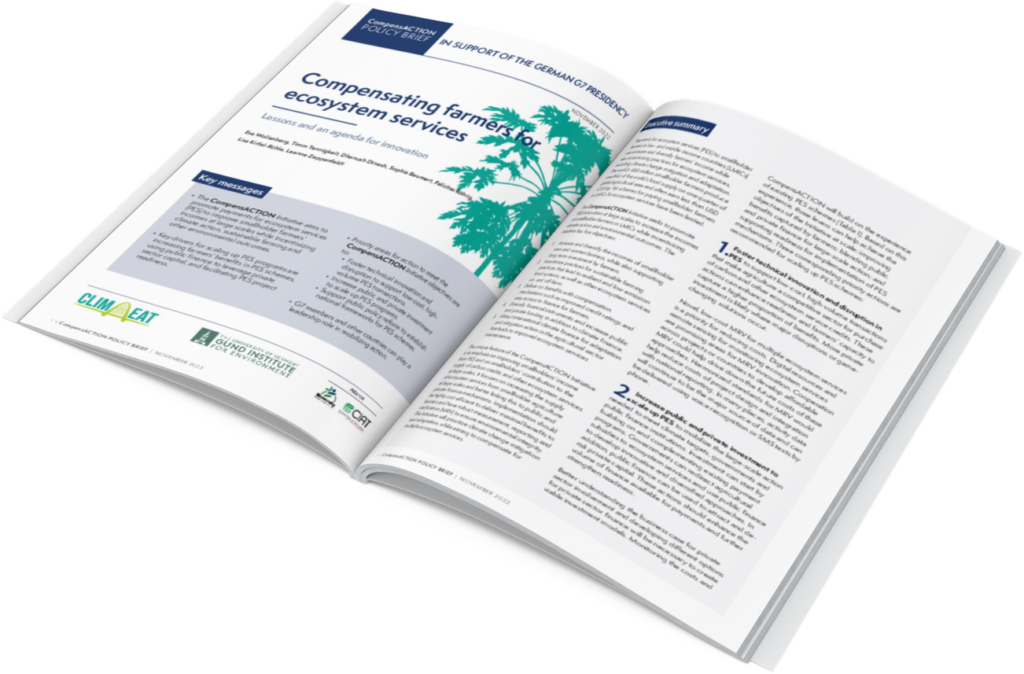Eva Wollenberg, Timm Tennigkeit, Dhanush Dinesh, Sophia Baumert, Felicitas Röhrig, Lisa Kirfel-Rühle, Leanne Zeppenfeldt
Payments for ecosystem services (PES) to smallholder farmers in low- and middle-income countries (LMICs) can increase and diversify farmers’ income while also incentivizing practices for ecosystem services, including climate change mitigation and adaptation. The world’s 480 million smallholder farmers produce one third of the world’s food supply on one quarter of
global agricultural area and often earn less than USD 1.25/day. Yet schemes for paying smallholder farmers in LMICs for ecosystem services have been limited.
The CompensACTION Initiative seeks to promote PES innovation at large scales to increase the incomes of smallholder farmers in LMICs while incentivizing climate action and environmental outcomes. The Initiative has five objectives:
- Increase and diversify the incomes of smallholder men and women farmers, while also supporting long-term investment by farmers.
- Incentivize practices for sustainable farming practices that lead to resilient and low-emission food systems, as well as other ecosystem services on- and off-farm.
- Deliver co-benefits with compensation mechanisms such as improved credit ratings and easy access to finance for farmers.
- Diversify financial instruments and increase public and private funding in addition to climate finance.
- Attract international climate finance for adaptation and mitigation action in the agricultural sector that leads to improved ecosystem services maintenance.
The unique feature of the CompensACTION Initiative is its emphasis on improving smallholders’ income from PES and on smallholders’ contribution to the supply of carbon credits and other ecosystem services at large scales. It focuses on increasing the supply of ecosystem services from smallholder agriculture at large scales and better linking this to public and private finance mechanisms. Implementation should be highly cost efficient to deliver maximal benefits to farmers and have robust measurement, reporting and verification (MRV) to ensure environmental integrity. The Initiative will prioritize climate change mitigation and adaptation, while aiming to compensate for multiple ecosystem services.
…
